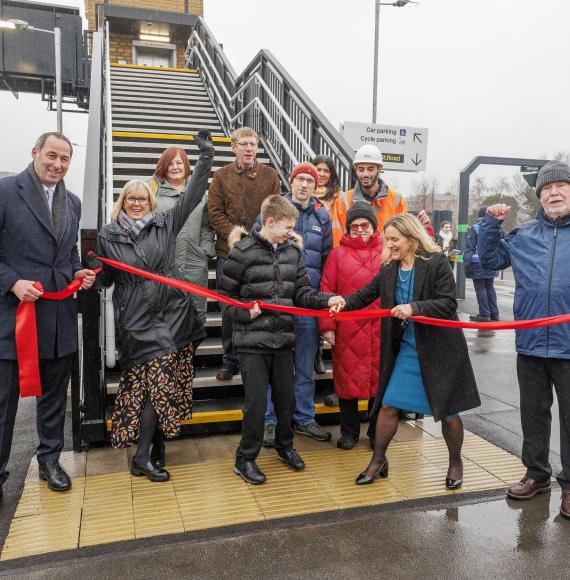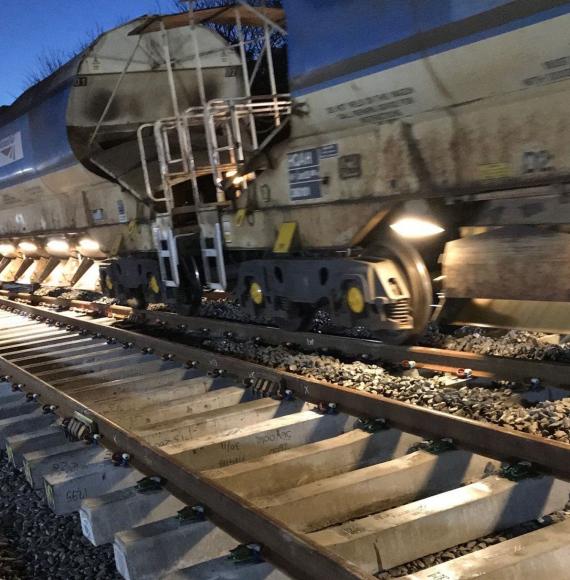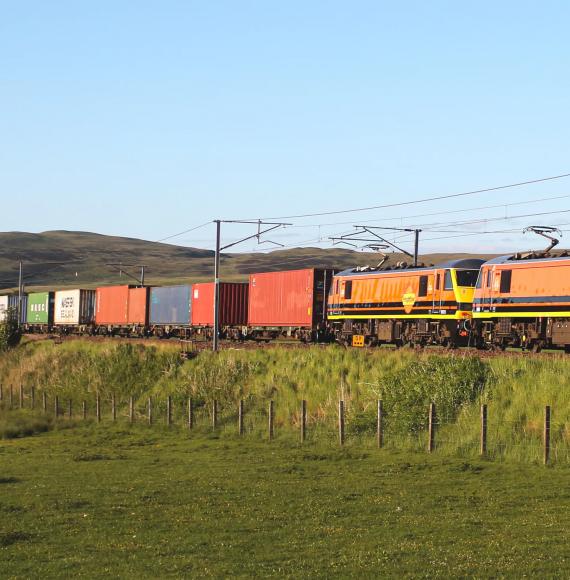Engineers from Loughborough University and the University of Sheffield have partnered up to develop a new on-board system which allows trains to instantly detect leaves on the line.
The new system developed in partnership with engineering firm Perpetuum allows trains to identify low adhesion hazards.
The new technology will detect low adhesion spots in real-time creating an up-to-date map showing any potential hazards on the UK’s rail network.
To maintain safety and limit delays a minimum level of adhesion is key for braking and traction performance on trains.
Dr Chris Ward, Senior Lecturer in Control Systems Engineering at Loughborough University is leading the initiative and spoke on how the project could benefit the UK’s rail network.
Dr Ward said: “The network is in danger of low adhesion events occurring at all times and the industry takes the impact of these incredibly seriously.
“Network Rail and the wider rail industry invests huge amounts of money in rail head cleaning, controlling flora alongside lines and forecasting where low adhesion events may occur.
“But it’s not an exact science and affected areas may only be discovered after an incident has taken place.
“This new technology… will allow for a much more accurate picture of where hazards lie on the UK’s huge network of track.
“[This] will mean a quicker response - such as defensive driving or railhead treatment - and as a result a safer network with fewer delays.”
Established sensing methods will be used by the new detection system to collect data.
This data will then be processed using algorithms created by Dr Ward and his colleagues at Loughborough University.
Network Rail are set to conduct tests on the new system and believe it could help them achieve future ambitions.
Elaine Cockroft, Project Manager at Network Rail said: “The aim is to develop a first of type product addressing the issue of low adhesion.
“The medium-term aspiration is to install a device on the Network Rail Head Treatment Train (RHTT) or a Multi-Purpose Vehicle (MPV).
“The future ambition is to add the technology to passenger trains or freight locomotives.
“So the technology would need to be developed to capture continuous data at a travelling speed of 125mph across the network.
“This would feed into an up-to-date adhesion map of the network.”
A 22-month study will take place on the system at Network Rail’s Rail Innovation and Development Centre in Tuxford.
Synthetic low adhesion will be created as part of the testing programme and measured using state-of-the-art friction measurement equipment from the University of Sheffield.


















